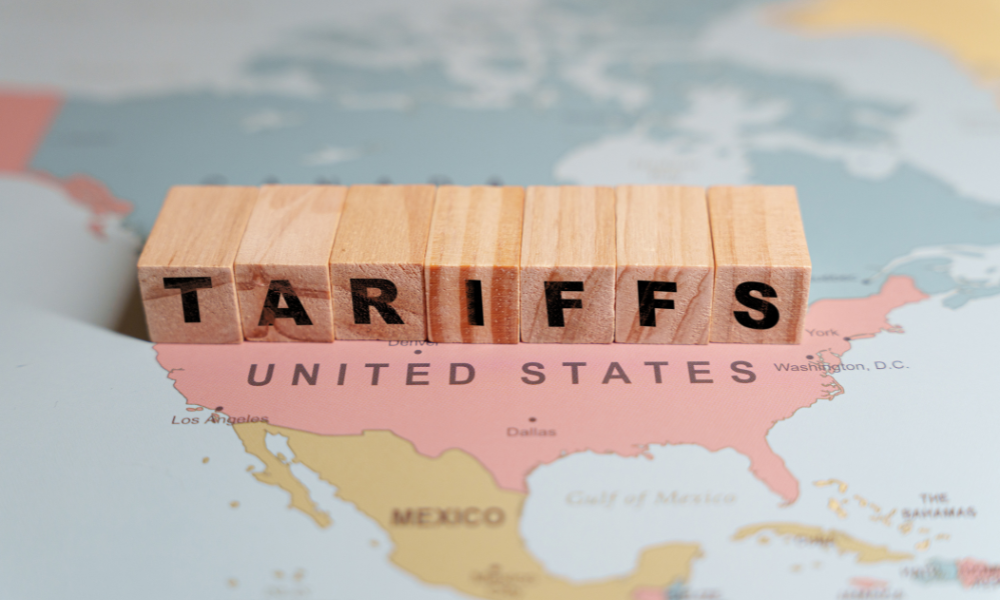Responsible investment specialist breaks down why every client deserves an ESG explainer, and finding the right RI fit can be challenging

Unlike most advisors, Patrick Briscoe has made ESG and responsible investing an integral part of his business. While he’s mindful to introduce the concept to clients, it’s not something he’s forcing on anyone.
“My clients have diverse backgrounds and views,” says Briscoe, a financial planner at Bayswater Wealth Management with IPC. “As a financial planner, my ultimate goal is to make sure they’re achieving the goals they want to achieve, and getting there the way that they want to.”
ESG investment: a must-ask question
While he acknowledges each client has their own priorities, he believes the question of ESG investment is something should at least be asked. To that end, every prospect he meets with is given the same introductory presentation, which includes a slide dedicated to ESG that discusses the UN Sustainable Development Goals as well as Briscoe’s Responsible Investment Specialist (RIS) designation.
Those who decide to become clients go through a data-gathering process that includes a video refresher on ESG investment, immediately followed by a question asking them to rate ESG investing’s importance to them on a 10-point scale.
“When I started the process out, I was often getting higher scores than I thought I would,” Briscoe says. “The number of fives were pretty slim. … It was usually seven, eight, nine and sometimes 10.”
He says most of his clients want a certain degree of positive or negative screening – informed by “ethics or morality, for lack of a better word” – to happen in the stock selection process for their portfolios. Among those with a stronger ESG investing emphasis, he estimates fossil-fuel free investment is the most popular ask and is relatively easy to fulfill.
Clients can have very specific convictions, which can be challenging from a responsible investing perspective. In one extreme case, Briscoe says he was asked to invest in a vegan portfolio, which meant excluding companies that participate in meat production, mass farming, animal trade, or have products that use animal-based ingredients.
“I have found solutions specifically for that outside of Canada, but a Canadian vegan portfolio pre-built by a portfolio management team is hard to find,” he says. “We explored ESG product offerings that were less diversified and generic … we couldn’t just go with a balanced portfolio, for example.”
After some digging, Briscoe found the answer in an equity solution focused on environmental leaders. While it didn’t come with a “vegan” label, a thorough combing of the underlying portfolio revealed none of its holdings weren’t vegan-friendly.
How to do an ESG deep dive
The surge of popularity in ESG a few years ago spurred a wave of product launches, Briscoe recalls, with companies quick to introduce ESG versions of some of their most popular funds and portfolios. While those portfolios do include some ESG index-based ETFs, he says most of them have come off as a marketing play to get a piece of the responsible investing gold rush.
That’s the same conclusion the Ontario Securities Commission (OSC) came to in a broad examination of ESG investment products. In the OSC’s most recent summary report for Investment Fund and Structured Product Issuers, it highlighted its continuing review of funds that use ESG strategies or refer to ESG factors in their investment objectives. That work revealed potential greenwashing issues relating to fund names, investment objectives, ESG risk disclosure, and ESG related disclosure in the summary of proxy voting policies and procedures.
“Through these reviews, we have required issuers to improve the prospectus disclosure of ESG-Related Funds, in keeping with the stated purposes of the ESG Staff Notice and the ESG prospectus reviews,” the OSC said.
For his own deep dives, Briscoe says he prefers to start by looking on the website of the Responsible Investment Association (RIA). Aside from maintaining and conferring the RIS designation, the RIA has an investment products database page with filters to help advisors and investors find options based on the ESG specifications or principles they’re looking to satisfy.
“From there, people can dive a little deeper to find out how committed that team [behind the fund] actually is to meeting those principles,” he says.
Briscoe also highlighted the RIA’s virtual forums and its annual Canadian RI Trends report, which breaks down investor sentiment and new developments in ESG across Canada based on extensive survey research. The RIA has announced the latest edition of that research will come out later this month.
“I would say [advisors] owe it to themselves and to their clients, to go through the process of educating themselves on ESG,” Briscoe says. “It doesn't mean they have to focus in that area. They might even be skeptics. … Even if you don't end up keeping the membership, it's a good learning experience.”
“The stats show clients at least want it to be discussed, and the easiest way to do that is through the RIS designation,” he says. “Most dealerships and a lot of fund companies will actually cover the cost of the course for an advisor, so there's really no excuse not to do it.”



